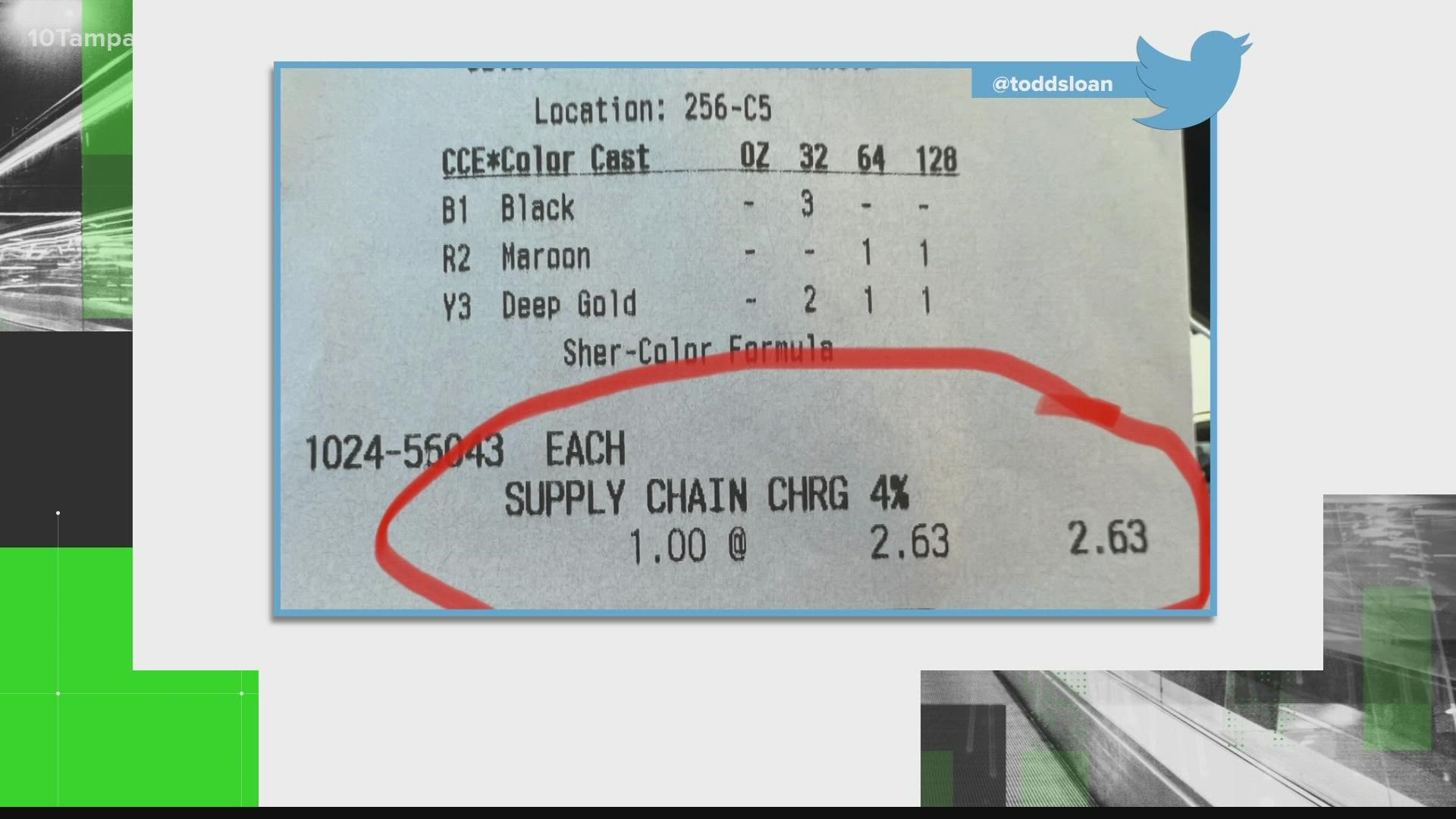ST. PETERSBURG, Fla. — The global supply chain is still recovering from interruptions caused by the COVID-19 pandemic.
Shortages, coupled with increasing demand, are driving prices up on many goods.
But are some companies passing on rising costs to consumers through additional fees?
Several people on social media are posting pictures of their receipts, specifically from Sherwin-Williams, showing they were charged a “supply chain surcharge.”
THE QUESTION
Are companies adding surcharges on some goods and services due to ongoing supply chain issues?
THE SOURCES
- Seckin Ozkul, director Supply Chain Innovation Lab at the University of South Florida
- Sherwin-Williams
- FedEx
- Harley-Davidson via MarketScreener
THE ANSWER
Yes, companies like Sherwin-Williams are tacking on surcharges due to ongoing supply chain issues.
WHAT WE FOUND
The CEO of Sherwin-Williams, the largest paint company in the U.S., warned investors in September the company was dealing with rising manufacturing costs due to waning availability of raw materials.
"The persistent and industry-wide raw material availability constraints and pricing inflation we have previously reported have worsened,” Sherwin-Williams Chief Executive John Morikis said.
“We do not expect to see improved supply or lower raw material pricing in our fourth quarter as anticipated.”
A photo of a notice purportedly posted at the entrance of a Sherwin-Williams store says the surcharge is “due to increased costs associated with transportation, freight and labor.”
A statement from the company confirms this, “We have announced a 4 percent surcharge in The Americas Group effective September 20 through the end of the year.”
Seckin Ozkul, the director of the University of South Florida’s Supply Chain Innovation Lab, says what’s happening to the supply chain now started during the pandemic.
“We’ve never had such a big disruption before to our supply chain such as the pandemic,” he said.
Quick, drastic changes in demand over the past two years have had ripple effects up the supply chain. Those ripple effects, according to Ozkul, only get more dramatic the higher you go on the chain — known as the “bullwhip effect.”
It’s why we’re seeing backlogged shipping ports, Ozkul explains. It’s a lot of the goods that had been held up now finally ready all at once with nowhere to go.
Not being able to get the products to store shelves in a timely manner is partly what’s driving up costs and some companies are passing the increase onto you. But it’s likely temporary, he said.
“The surcharge is just another way of saying we are incurring additional costs and somebody needs to pay for it, sorry we’re not going to pay for it,” Ozkul said.
Ozkul says surcharges are not a new concept. When jet fuel costs go up, airlines frequently pass those costs onto customers in the form of a fuel surcharge.
Other companies are doing it, too. Harley-Davidson said squeezed inventory and higher raw material costs drove the company to increase surcharge pricing in the United States to offset costs.
Consumers are also doling out more for certain FedEx shipments. The carrier added a fuel surcharge, which went into effect on certain deliveries at the start of November.
So why not just increase the price?
Ozkul said it’s likely because it's just a temporary charge until the supply chain recovers, which he expects will happen by the summertime.

